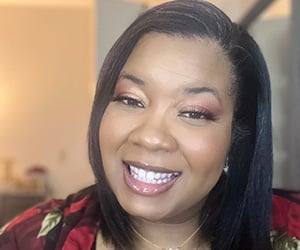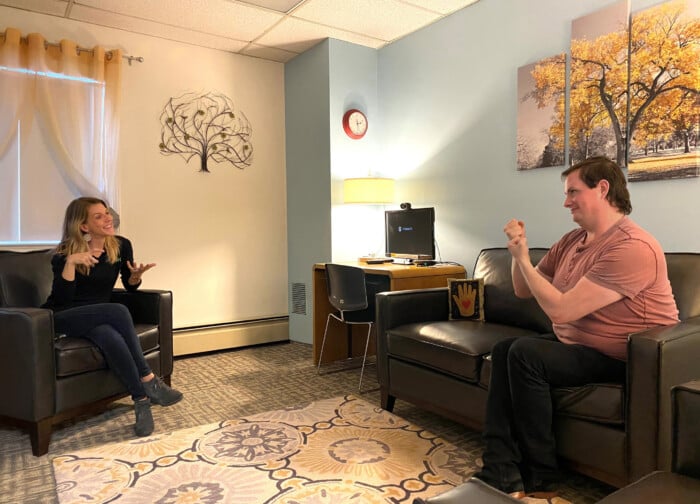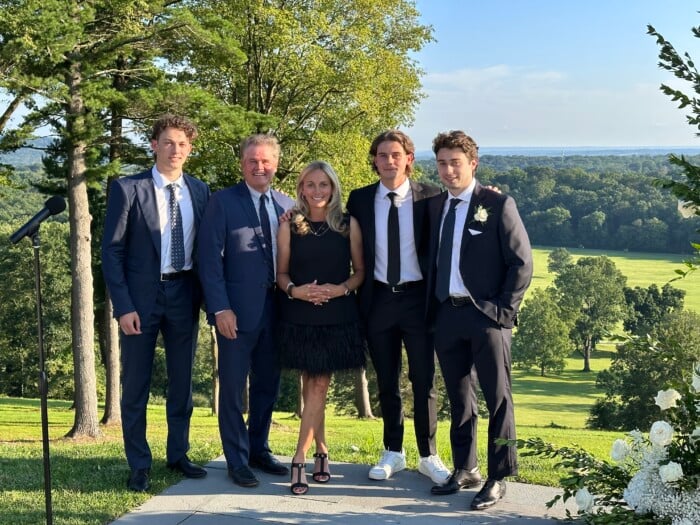Ms. Vee and the Blues in New Hampshire
A Story of Legacy and Resilience

Ms. Vee was born in Arkansas and trained in music, especially blues, jazz, Southern gospel and soul. She now lives in Berlin, in northern New Hampshire, while traveling the country and globe performing. Photo by Norm Eder
Blues music may not be the first thing that comes to mind when you think of the Granite State. However, if you ask around and know where to look, you’ll find it woven into the state’s cultural fabric and music scene.
From historic venues like The Stone Church in Newmarket to the work of the Granite State Blues Society, various weekend jam sessions, and music festivals across the state, the genre has carved out a niche space here, even if it’s far from its birthplace in the Mississippi Delta or its roots in Memphis, Chicago and Houston.
It thrives in intimate club performances, on festival stages, and in the voices of dedicated musicians who refuse to let the blues fade into history.
One of those voices belongs to Ms. Vee of Berlin. A force of nature on and off the stage, she is more than a performer; she is a storyteller, an activist and a living bridge between the past and present. Born Valyria Nyree Williams in Arkansas, she later embraced the name Acosia after a trip to Ghana, where she reconnected with her ancestral roots in a profound, emotional way.
“The visit was so heavy, I cried like a fool,” she said. That experience led to her song “Sweet Ghana,” a powerful reckoning with history and identity. The lyrics speak both to her ancestors and the oppressors of the past, a reminder that the pain of history lingers, but so does its strength.
For Ms. Vee, blues isn’t just music; it’s a living history. It’s also a battle. Being a Black blues artist in a predominantly white state comes with its challenges, and she doesn’t sugarcoat them. “They hate our Black … but love our blues,” she says,
summing up a reality that’s hard to ignore.
The blues was born out of struggle, and she believes it’s a mistake to strip it of its roots.
“Blues and politics have always been intertwined,” she said. “You can’t separate them. The music was created as a response to oppression, and to ignore that is to erase its meaning.”
Those origins stem from the 1800s when Black American slaves blended work songs, spirituals and field hollers into what would ultimately give birth to the blues.
According to music historian Lamont Pearley Sr., writing for the African American Intellectual History Society, the blues was “an avenue for survival” that allowed enslaved people to express pain, resilience and hope despite the brutal conditions they faced. As the genre evolved, it became a powerful form of storytelling, carrying the weight of history and shaping generations of Black musicians.

Ms. Vee recently traveled to Ghana where she participated in a renaming ceremony, an experience for descendants from the African disapora. Photo by Norm Eder
That perspective hasn’t always made her popular in every blues circle. Vee has encountered audiences who love the music but are uncomfortable when she brings up its history. She’s shared stages with musicians who prefer to avoid politics altogether. And she’s had to navigate spaces where she feels like she has to prove herself before being fully accepted.
“Sometimes I feel like I have to be a dancing bear,” she says. But she refuses to shrink herself.
And when she steps on stage, she owns it. Dressed in one of her colorful signature ball gowns — because, as she puts it, “People appreciate when you dress up for them” — Ms. Vee commands attention.
Whether she’s belting out a classic blues standard or one of her original songs, she brings fire, humor and raw emotion to every performance. “I want to connect with the audience,” she said. “That’s what this music is about.”
Beyond her personal journey, the broader blues scene in New Hampshire continues to evolve. The White Mountain Boogie N’ Blues Festival, the largest of its kind in the state, brings top national blues artists to the region every year. Events like the New England Blues Summit offer workshops and networking for musicians and fans alike.
The Granite State Blues Society works to keep the genre alive, hosting annual Blues Challenges that send local artists to compete in the International Blues Challenge in Memphis. Across the state, you can find pockets of Sunday jam sessions at Riley’s Place in Milford and Manchester’s Strange Brew, and shows at Jimmy’s Jazz & Blues Club in Portsmouth.
Despite these efforts, Ms. Vee acknowledges that representation remains an issue. “There aren’t many Black artists in the New Hampshire blues scene,” she says matter-of-factly. And while there are musicians who are passionate about the genre, she argues that passion alone isn’t enough — it needs to come with respect for the music’s origins.
“Blues isn’t just a sound. It’s a history. It’s a culture,” she said. “If you’re going to play it, you need to understand where it comes from.”
Her dual role as a musician and a labor union educator underscores her commitment to advocacy. Just as she fights for workers’ rights, she fights for blues music to be recognized for what it truly is — not just entertainment but a vital, ongoing story of struggle and resilience. “Blues is a truth-teller,” she said. And Ms. Vee has no intention of letting that truth be forgotten.
As long as she has a microphone in hand, she’ll keep singing, keep speaking, and keep making sure that the blues in New Hampshire isn’t just heard — it’s understood.
This article was featured in 603 Diversity.
603 Diversity’s mission is to educate readers of all backgrounds about the exciting accomplishments and cultural contributions of the state’s diverse communities, as well as the challenges faced and support needed by those communities to continue to grow and thrive in the Granite State.













